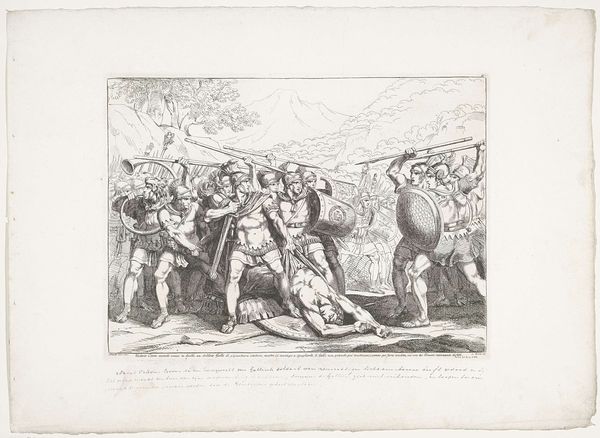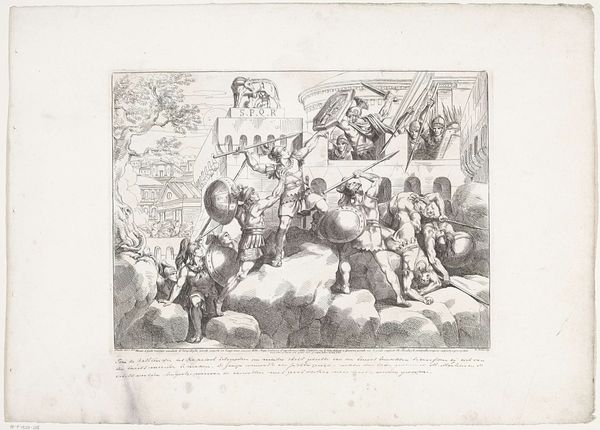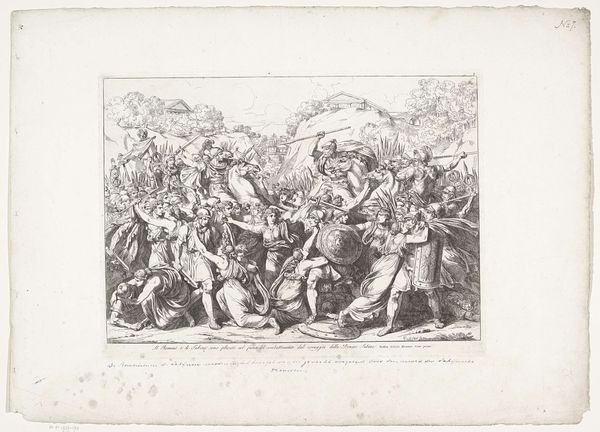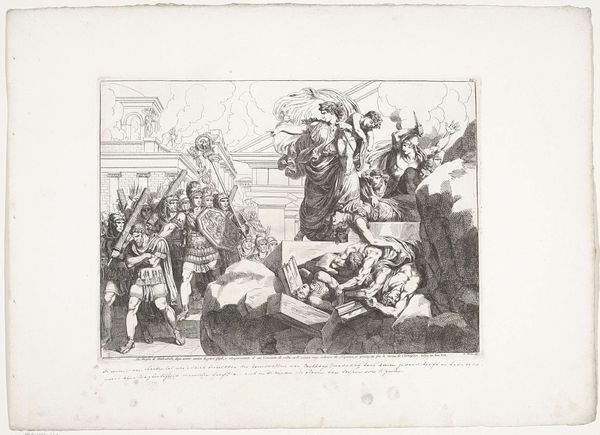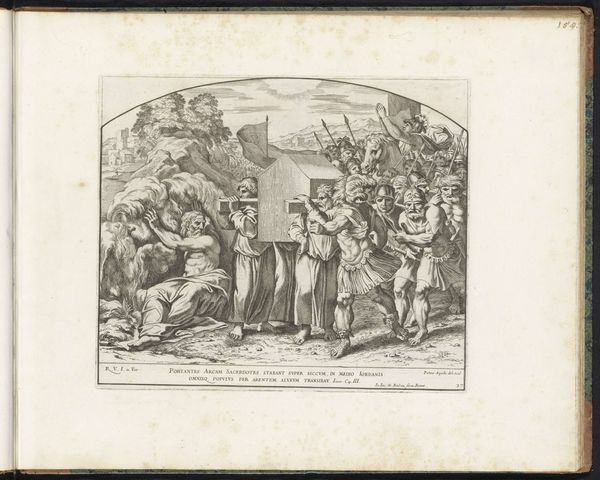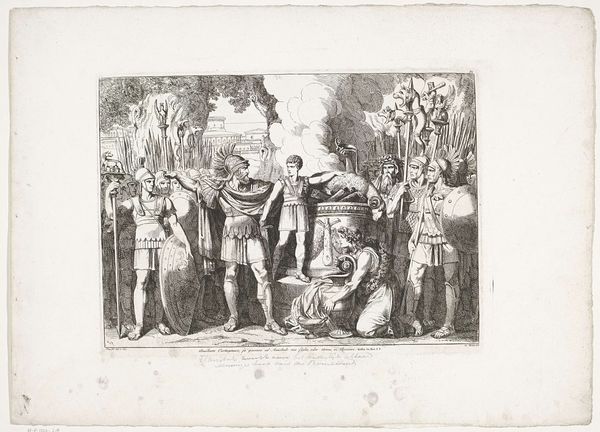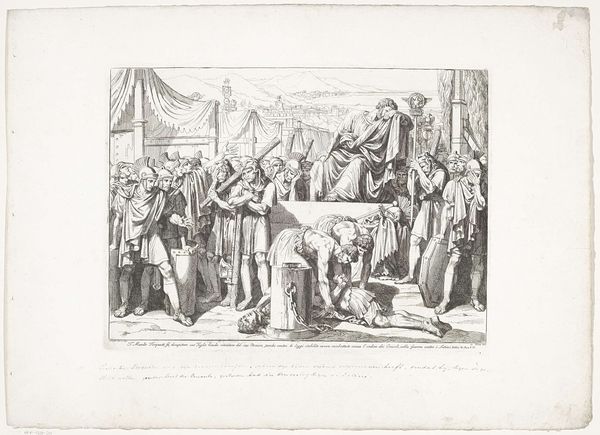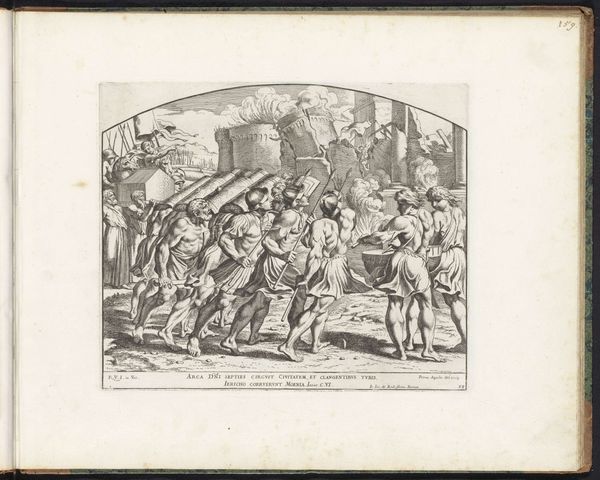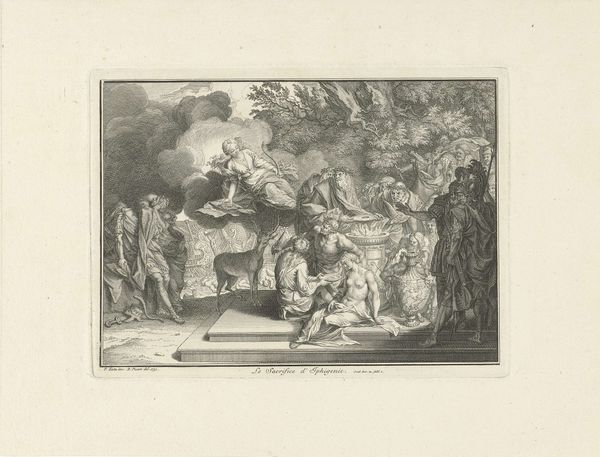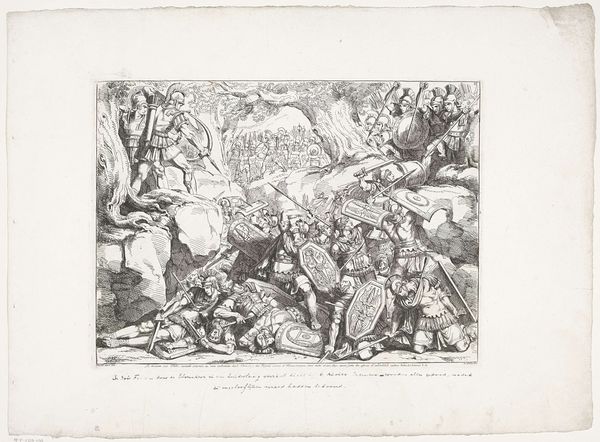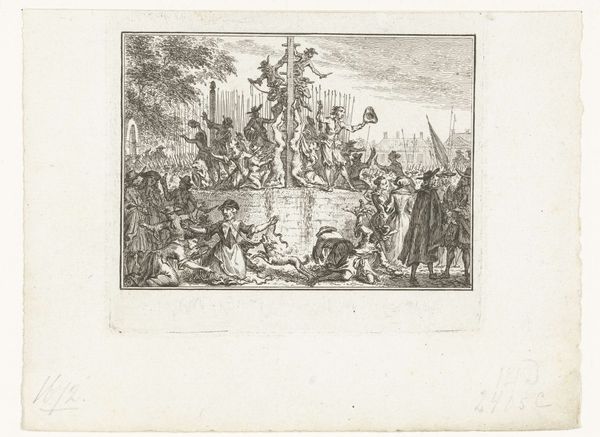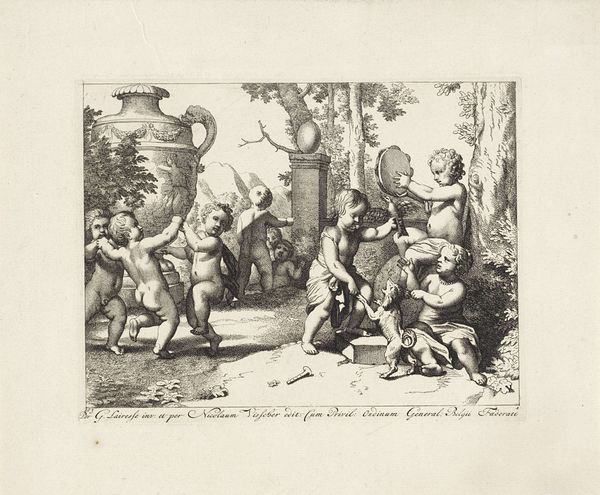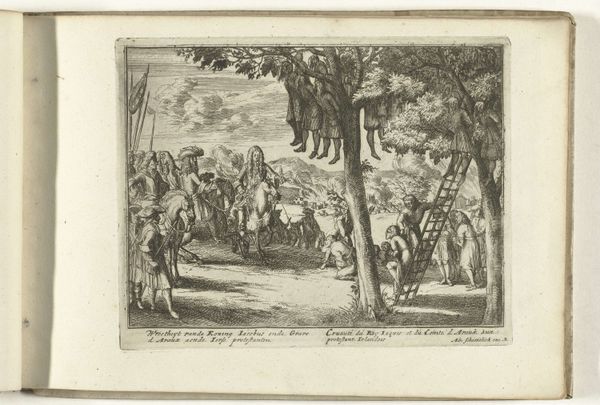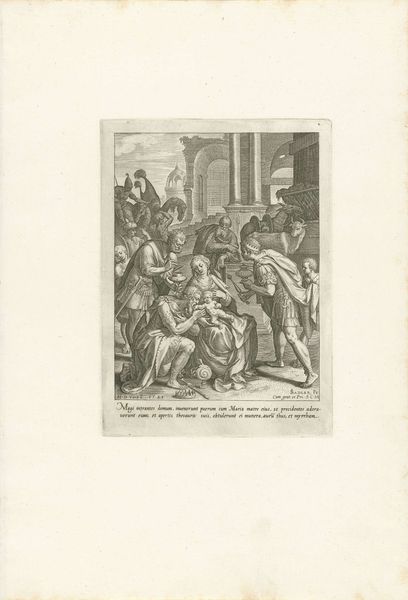
print, engraving
toned paper
light pencil work
narrative-art
pencil sketch
old engraving style
classical-realism
figuration
personal sketchbook
ink drawing experimentation
romanticism
pen-ink sketch
line
sketchbook drawing
history-painting
sketchbook art
engraving
pencil art
Dimensions: height 314 mm, width 426 mm
Copyright: Rijks Museum: Open Domain
Bartolomeo Pinelli made this print of ‘Stervende Calpurnius Flamma gevonden’ or ‘The Dying Calpurnius Flamma Found’ using etching. It is an image that conveys the glory and drama of ancient Rome. Made in the early 19th century, this artwork evokes the visual codes of heroism and sacrifice, themes that were very much in vogue at the time. Pinelli’s Rome was one gripped by a renewed sense of nationalism and interest in its classical past. This interest was cultivated by museums and academies that both preserved antiquities and promoted the aesthetic values of antiquity. Calpurnius Flamma was a Roman soldier who volunteered to defend a narrow path against the invading Samnites, thus allowing the Roman army to escape. Pinelli’s work thus participates in the fashion for Neoclassicism that idealized antiquity. A deeper understanding of this work can be achieved through studying the history of museums, the rise of nationalism, and the politics of imagery in Pinelli’s time.
Comments
No comments
Be the first to comment and join the conversation on the ultimate creative platform.
